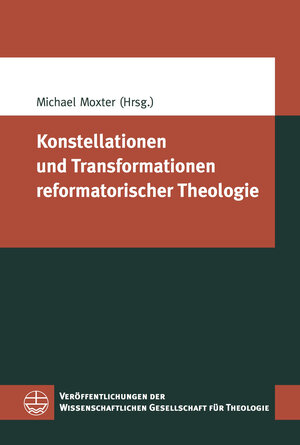
×
![Buchcover ISBN 9783374051700]()
Konstellationen und Transformationen reformatorischer Theologie
herausgegeben von Michael Moxter»Reformation« ist ein Schlüsselwort, das epochale Veränderungen in Kirche und Theologie, im sozialen und politischen Leben bezeichnet, und zwar mit Ausstrahlung auf die gesamte europäische Geschichte. Als Metapher suggeriert es jedoch die Wiederherstellung einer ursprünglichen, dem Christentum von seinen Anfängen her mitgegebenen Form, wodurch die unvorhersehbaren Neuerungen und Veränderungen eher verdeckt werden. Schon die Reformation war vor allem Transformation. Reformatorisch ist die Theologie in der Folge darum auch nicht, wenn sie sich an die historische Gestalt der Theologie der Reformatoren bindet, sondern wenn sie den reformatorischen Impuls aufnimmt und in zeitgenössischer Verantwortung fortsetzt. Umso deutlicher die historischen Konstellationen des frühen 16. Jahrhunderts vor Augen stehen, desto unabweisbarer wird die systematisch-theologische Frage nach den Transformationsgestalten protestantischer Theologie.
Der Band versammelt Beiträge zweier Tagungen der Fachgruppe Systematische Theologie mit den Schwerpunkten Dogmatik und Ethik, u. a. von Michael Beintker, Philipp David, Rebekka Klein, Dietrich Korsch, Malte Dominik Krüger, Gesche Linde, André Munzinger, Cornelia Richter, Karl-Siegbert Rehberg, Christoph Seibert, Walter Sparn, Knut Wenzel.
[Constellations and Transformations. Reformation Theology Revisited] »Reformation« is a key word that describes fundamental changes in church and theology, in social and political life with striking consequences for the entire European history. However, this term entails the suggestion, that a primary and original form of Christian belief is restored while in fact something new and unpredictable was initiated, a series of ongoing transformations. Rethinking theology in the wake of the Reformation therefore starts by reassuming its initial impulses, not by restricting itself to its historical forms. One might even say: The more the constellations of the formative years of protestant theology are historically reconsidered, the stronger the urge is felt to reshape contemporary religious life and Christian faith.
Der Band versammelt Beiträge zweier Tagungen der Fachgruppe Systematische Theologie mit den Schwerpunkten Dogmatik und Ethik, u. a. von Michael Beintker, Philipp David, Rebekka Klein, Dietrich Korsch, Malte Dominik Krüger, Gesche Linde, André Munzinger, Cornelia Richter, Karl-Siegbert Rehberg, Christoph Seibert, Walter Sparn, Knut Wenzel.
[Constellations and Transformations. Reformation Theology Revisited] »Reformation« is a key word that describes fundamental changes in church and theology, in social and political life with striking consequences for the entire European history. However, this term entails the suggestion, that a primary and original form of Christian belief is restored while in fact something new and unpredictable was initiated, a series of ongoing transformations. Rethinking theology in the wake of the Reformation therefore starts by reassuming its initial impulses, not by restricting itself to its historical forms. One might even say: The more the constellations of the formative years of protestant theology are historically reconsidered, the stronger the urge is felt to reshape contemporary religious life and Christian faith.






